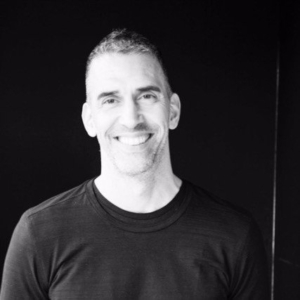4 B Corps Share How They Make a Four-Day Workweek Work
November 6, 2024
Business Tips, Policies, and Frameworks to Better Balance Work and Well-Being
Making the change to a four-day workweek has implications for companies on several levels. While the potential benefits — including improved worker well-being and business performance — are universal, the nuts-and-bolts processes involved in the change vary for each company. And many company leaders are skeptical that reduced hours will accommodate the tasks that need to be executed to remain in business.
As for-profit businesses that continually look for meaningful ways to increase their positive impact on people and the planet, some Certified B Corporations are among the early adopters of the four-day workweek. The regional nonprofit that oversees B Corp Certification, B Lab U.S. & Canada, has adopted a four-day workweek with the goal of helping employees come to work feeling more refreshed and granting them trust to get tasks done within fewer hours.
To help business leaders better understand what the transition to a four-day workweek looks like in action, B The Change contacted several B Corps that have reshaped their schedules. They offer a look at the gradual steps they’ve taken to reduce working hours while maintaining productivity and profitability. Across the board, they emphasize the need for communication, transparency, flexibility, and accountability — when things are going smoothly and when they get a bit bumpy.
In the insights that follow, these B Corp leaders share an inside look at some of the challenges and benefits they’ve discovered and share tips for other companies considering a similar change:
- Donna Cheung of Vancouver-based Wakefield Agency, a video production firm.
- Carolina Miranda of Cultivating Capital, a B Corp Certification consulting company.
- Elise Allyn of Conscious Revolution, a Maine-based business that provides leadership guidance including coaching, unique community experiences, and organizational consulting.
- Dominic Tremblay of Tux Creative, a creative agency with offices in Los Angeles and Montreal that provides design, branding and communications services.

Why and How to Adopt This Business Framework
This guide from B Lab U.S. & Canada explores how the four-day workweek is gaining traction as a long-term framework for worker resilience and bottom-line strength. It offers business examples, lessons, and resources to help organizations make the shift.
Wakefield Agency: Providing a Framework of Training, Time Management, and Transparency
For Donna and Nouver Cheung of Vancouver-based Wakefield Agency, the switch to a four-day workweek parallels their own family’s decision to practice Shabbat — 24 hours to rest, enjoy nature, and nurture relationships. This rule-of-life rhythm at home led to several insights that apply to the workplace as well. “It’s about trial and error, and not perfection,” Donna Cheung says. “We are not robots that turn on and off. We need time to prepare and power down — to be human.”
She says the idea to try a four-day workweek arose during regular discussions about Wakefield Agency’s values: authenticity, alongside, and impact. As the video production company decided to try the new schedule, it established a goal of being competitive with companies that have five-day, 40-hour workweeks. That meant incorporating a focus on finances and efficiency and adopting processes to reinforce transparency and accountability.

For Donna and Nouver Cheung of Vancouver-based Wakefield Agency, the switch to a four-day workweek parallels their own family’s decision to practice Shabbat — 24 hours to rest, enjoy nature, and nurture relationships.
Cheung said the agency took intentional steps to prepare for the change, including productivity training to help team members manage time and tasks, and time tracking to provide accountability and gather metrics to shape proposals and budgets. They honed their focus on results-based work through regular check-ins with clients and measures of customer satisfaction.
“We also built in flexibility as we started with the Fridays being a no-meeting day, which then led to a professional development day and then finally a flex day,” Cheung says. “If team members wanted to use Friday as a chance to tie up loose ends, that was up to them. But no one is expected to work or answer any communications on that day. We have trained our clients with this expectation.”
They have prioritized regular communication about the four-day workweek with team members through weekly check-ins as well as annual reviews of remote working guidelines to support accountability and transparency. “This allows us to revisit what we’ve set out to do as well as realign with the expectations if things have veered off,” Cheung says.
Another important component: communicating the financial side of the schedule change with employees. “Keep conversations going amongst team members to grow the awareness of what each hour of work is valued at and how to bring that value to clients,” Cheung says. “It is critical to invite greater stewardship of goals and outcomes. Each staff needs to know how they can directly affect the bottom line in the customer journey.”
Leading a team through the change requires authenticity and honesty, Cheung says. “Examine your own life and your true belief of wellness. You cannot lead people where you’ve not gone,” she says. “Share with your team your learnings, and open up dialogue on company values and each staff’s hopes and wishes for how they want to show up and add value to the organization.”
Most of all, she encourages other businesses to take the step, and then adapt as needed: “Test, iterate, and have fun with it.” (She also welcomes questions about the shift to a four-day workweek through this form.)
Cultivating Capital: Staying Flexible and Keeping Lines of Communication Open
Cultivating Capital Founder Carolina Miranda says the decision to try a four-day workweek was inspired by B Lab U.S. & Canada’s pilot. “Suddenly, there was a very practical model to follow,” she says. But it’s also a model that can be adapted to meet the realities of each company. “For us, it’s different from what we originally piloted, and I expect that it will continue to evolve over time.”

How does Carolina Miranda spend her “extra” day off? “I’ve enjoyed using the extra day to get away for a long weekend, whether it’s to the beach or for a camping trip. We’ve also seen the extra day used for ‘life admin’: catching up on personal tasks, appointments, and errands that would otherwise cut into the weekend. This means that the actual weekend can be truly restful and focused on family, hobbies, and recharging.”
Being willing to listen, consider, communicate, and adjust is important when trying new things as a business, Miranda says. “Come up with some reasonable guidelines and be prepared to iterate on your approach based on feedback and your own experience,” she says. “Be sure to communicate with relevant stakeholders about what you’re doing.”
As an agency that helps other companies navigate the B Corp Certification process, Cultivating Capital does all of its work online — and Miranda says spending eight hours a day in front of a computer isn’t optimal for sustained productivity. “As a result, we asked ourselves, ‘What if we take the total hours worked in a four-day workweek (32) and spread them out over five days?’” Now, team members can choose to work 6.5 hours a day over five days or the 8 hours for four — and are able to switch between the two as they wish.
The decision to do a summer trial of a four-day workweek at Cultivating Capital embodies the B Corp’s belief in the connection between business success and employee well-being, Miranda says. “We’re committed to challenging traditional workplace norms and demonstrating that companies can thrive while prioritizing work-life harmony; in fact, we monitor KPIs related to well-being on a weekly basis,” she says. “We believe that productivity isn’t about the number of hours worked, but about creating conditions where people can do their best work. Having a three-day weekend on a regular basis is good for both morale and productivity.”

The Future of Work Is Now
The community of Certified B Corporations knows that profits don’t have to come at the expense of other stakeholders. Learn more in this downloadable report.
Conscious Revolution: Making Space for Our Humanity and Connection
As a consultancy that helps shape conscious businesses, Conscious Revolution aims to provide a work culture that acknowledges life outside work. “One of our values is being human first, and to be human, you need space, laughter, boundaries, humility, and connection,” says Elise Allyn, Associate Consultant and Lead Analyst. “Having a four-day workweek allows our team the time and space to explore hobbies, take care of ourselves and the people we love, and generally be whole people — not just employees.”

What does Elise Allyn do on her “extra” day off? “My number one rule: I do not open my laptop. A typical Friday for me is yoga, pottery, elaborate homemade lunch, reading outside. Sometimes I will have appointments or other less fun things to do, but generally I try to slow way down, get offline, get back into my body and nature.”
The decision to try a four-day workweek was motivated by a client who had taken that step. “When we heard they were going to do a four-day workweek trial starting in May 2023, we were immediately like, ‘Oh, if they can do it, so can we,’” Allyn says. Conscious Revolution took gradual steps in its transition, starting with a six-month period of no client meetings on Fridays. “This made the move to not working at all on Fridays a lot easier for our clients as they were already not expecting to see us,” she says.
They’ve encountered some bumps along the way, such as getting everyone to actually work only four days. “It’s not a lot of fun if you have one employee who feels like they have to work that fifth day and is sending a million emails to everyone,” Allyn says.
She notes that it’s important to remember the why when determining the how, and to get creative when challenges arise. “The benefit is that you get more fully engaged and active employees,” she says. “I don’t have the ‘Sunday scaries’ because I feel like I’ve actually gotten a chance to do my chores, hang with friends, and recharge my batteries in a meaningful way. I’m actually ready to go to work on Monday.”
Tux: Creating Space for Creativity and Personal Well-Being
Tux Creative shifted to a four-day workweek about three years ago with the goal of nurturing workplace creativity and personal well-being. Founder Dominic Tremblay says the move is another step in the agency’s journey as an industry innovator. “As talent is our primary asset, we have been constantly trying to better nurture our teams and build a culture-first creative agency, confident that great ideas grow when talent is well-managed,” he says. “With so much of our emphasis being on talent, it is important to stay relevant with current practices.”

How does Dominic Tremblay spend his “extra” day off? “My Fridays are a mix of things,” he says. “I often spend some time with my kids at school, I practice sports, and sometimes I will read and write (yes, sometimes work-related). I sometimes decide to put in a few hours of work, but it’s very light, and no one is expecting me to work, so no meetings. I know many of our young parent employees are truly enjoying their Friday, as their kids are in school so it’s a true day off!”
Tremblay was inspired by Alex Soojung-Kim Pang’s book Shorter, which explores how companies can reduce work hours and increase productivity. He passed on some of the book’s ideas to a group of Tux workers and asked them to envision a new work schedule. While they considered other ideas — like more vacation time, every other Friday off, or half-day Fridays — the four-day workweek model garnered the most interest for the Tux team.
But the switch to a four-day workweek required intention, learning, and patience, Tremblay says. “It is a big shift in philosophy, and management needs to be supportive. Every company is different, and as such, there should be some flexibility in applying the model.” For Tux, those adjustments include working Fridays when Monday is a holiday.
Providing a schedule that supports worker well-being is another way that Tux lives its B Corp values and nurtures a more resilient business. “The four-day workweek is a great demonstration of newer and more progressive employee benefits,” Tremblay says, adding that results of the switch include stronger retention, happy employees, great work, and more efficiency overall.
Sign Up for our B The Change Newsletter
Read stories on the B Corp Movement and people using business as a force for good. The B The Change Newsletter is sent weekly.




